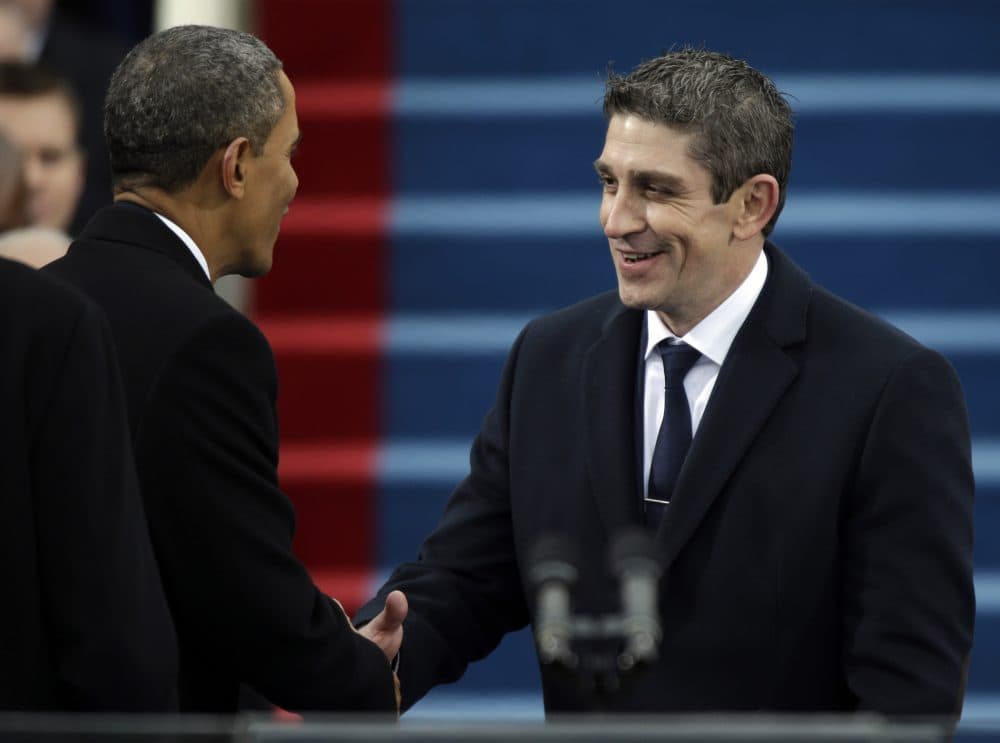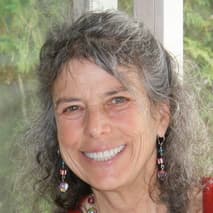Advertisement
If Trump Won't Give Us Inauguration Poetry, Let Us Read Whitman

COMMENTARY
A lot has been said about the many A-list celebrities who’ve declined invitations to Trump’s Inauguration. Almost nothing has been written about the poets. Have any been invited? For some, this may seem like a matter of little consequence, but for me, poets have been the most memorable part of inauguration. And so I’ve come up with an alternative. To honor what President Obama calls the “hallmark of our democracy,” let’s read our “poet of democracy.”
The first inauguration I can remember was also the first to include an inaugural poem. In fact, all I remember of that ceremony is the poet, Robert Frost — his wizened face filling our rabbit-eared Zenith’s modest screen. I was only 10, but I was fascinated. Our school principal, Mr. Abramowitz, often recited a Frost poem at our weekly assemblies. These were grown-up poems, probably the first I’d ever heard — and although I couldn’t have told you precisely what they meant, I sensed their grandeur and magic -- their attempt to tell me something important about how to live.
And so, when I saw Frost on TV at Kennedy’s inauguration in 1961, I felt he was there for me as much as anyone. Perhaps I was surprised he was just a man, old, (87, in fact), fragile-looking, but alive, his white hair blowing in the cold wind, the white paper in his hands flapping about. The sun, reflecting off the snow on the ground, made it hard for him to see. Perhaps a later PBS documentary hardened a wisp of a memory into an enduring one? In any case, I can still feel the drama and poignancy of that moment. Would he be able to read his poem? In the end, he resorted to reciting an old poem from memory.
It would be nearly another decade before I learned that poets could not only be living men, but living women as well. By then, I’d fallen in love with literature, so I attended two readings at my college — visits by Denise Levertov and Adrienne Rich -- neither young or glamorous but striking in their ordinary realness — as well as for the obvious respect our (male) professor granted them. Maybe I didn’t have to find fulfillment by being a muse to some man. Maybe I could be the writer!
After Frost’s inaugural appearance, four other inaugurations included poets. One, Miller Williams, came from far-off Arkansas. I don’t remember him but I remember well the two African-American women -- Maya Angelou and Elizabeth Alexander. I remember Richard Blanco, the openly gay Cuban immigrant, Obama’s pick four years ago. I can only imagine how many little and not-so-little boys and girls these poets inspired.
So yes, the lack of a poet matters -- to me and others who, consequently, might never discover how poetry can matter.
So yes, the lack of a poet matters — to me and others who, consequently, might never discover how poetry can matter. But lest I slip into the pitfalls of identity politics, I offer this alternative — piggy-backing off a friend who invites a small crowd to gather in her backyard each July Fourth to take turns reading Walt Whitman’s “Song of Myself.”
Unlike President-elect Donald Trump’s self-aggrandizing tweets and rants, Whitman’s opus celebrates multitudes:
I am of old and young, of the foolish as much as the wise…
Maternal as well as paternal…
A southerner soon as a Northerner…
a Hoosier, Badger, Buckeye;
Of every hue and caste am I, of every rank and religion…
I resist any thing better than my own diversity…
“Song of Myself" presages every progressive movement now threatened, giving language to “many long dumb voices:"
Voices of the interminable generations of prisoners and slaves,
…of prostitutes and of deform’d persons,
…of the diseas'd and despairing and of thieves and dwarfs…
"Whoever degrades others degrades me," he writes.
Need I say more?
The poem is long and uneven, but reading it aloud with others in my friend's backyard brought tears to my eyes. If you’re a fan of the Mormon Tabernacle and The Rockettes, by all means watch them, but inauguration events span three days. I hope you’ll find time for Whitman, preferably with others seated in a circle. As poet Dean Rader has written, with a nod to Langston Hughes, “… poetry doesn’t need [Trump] or his inaugural spotlight to make America America. Again."
